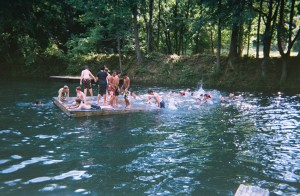 All units should recognize that they owe a “duty of care” to their youth. But the duty of care is accompanied by a “standard of care” – i.e., those steps taken by a unit to meet its duty of care.
All units should recognize that they owe a “duty of care” to their youth. But the duty of care is accompanied by a “standard of care” – i.e., those steps taken by a unit to meet its duty of care.
A unit’s standard of care should certainly include adherence to BSA’s policies and procedures, as set forth in the Guide to Safe Scouting, BSA’s new (2021) S.A.F.E. activity assessment criteria, the BSA Scouter Code of Conduct, youth protection principles, weather hazards training, trek safely guidelines, safe swim defense, safety afloat, among others.
Failure to meet the requisite standard of care may result in an unfortunate, unnecessary, and possibly avoidable injury (or worse) to a youth or adult, leading to court. Indeed, there has been at least one wrongful death lawsuit which alleged the duty of care was breached by failure to follow the Scouter Code of Conduct, the Guide to Safe Scouting, Hazardous Weather training, and the Sweet Sixteen (since replaced by BSA’s S.A.F.E. criteria).
A case involving the death of a scout due to heat illness during a hike reinforces this point. The complaint filed in connection with the resulting lawsuit against the scout leaders listed the following alleged breaches of the standard of care toward the scout:
- planning and conducting a day-long hike in 100 degree weather,
- failing to obtain proper weather information on the day of the hike,
- failing to follow BSA guidelines,
- failing to undertake proper training for leading minors on a hike,
- failing to recognize the signs and symptoms of heat illness,
- failing to take proper action after the scout exhibited signs of heat illness,
- continuing the hike after the scout showed signs of heat illness,
- failing to have proper communications equipment,
- failing to have proper equipment for the hike,
- failing to recognize an emergency situation,
- failing to ensure that the scouts were properly hydrating themselves,
- failing to conduct proper emergency planning, and
- failing to adhere to Trek Safely guidelines.
Allegations are allegations, and not necessarily true, as the purpose of the judicial system is to separate fact from fiction.
However, this case makes clear that, irrespective of whether the planned event is a hike, a campout, a ski trip, a ropes course, a swimming event, or a kayak or canoe trip, the standard of care must be a foundational aspect of risk management planning for, and the conduct of, the event.
Otherwise, lawyers may be asked to use their creativity to make allegations such as the above, which allegations would be unnecessary if there had not been an associated Scout tragedy!
Safe Scouting!
